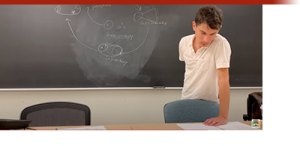Subscribe: Spotify | RSS | More
- Episode Transcript
- JRS EP 176 – Gregg Henriques Part 1 (of 3): Addressing the Enlightenment Gap
- JRS Currents 009: Gregg Henriques on Theory of Meta-Cultural Transition
- JRS EP 59 – Gregg Henriques on Unifying Psychology
- JRS EP 203 – Robert Sapolsky on Life Without Free Will
- A New Synthesis for Solving the Problem of Psychology: Addressing the Enlightenment Gap, by Gregg Henriques
- JRS EP 96 – Forrest Landry on Immanent Metaphysics: Part 1 (of 3)
Dr. Gregg Henriques is Professor of Graduate Psychology at James Madison University in the Combined Doctoral Program in Clinical and School Psychology. He received his Ph.D. in Clinical Psychology from the University of Vermont and did his post-doctoral training at the University of Pennsylvania. He is a theoretical psychologist and has developed the “Unified Theory of Knowledge,” which is a consilient scientific humanistic worldview to unify psychology. He is the author of A New Unified Theory of Psychology (Springer, 2011), and A New Synthesis for Solving the Problem of Psychology: Addressing the Enlightenment Gap (Palgrave McMillian, November 2022). His scholarly work has been published in the field’s best journals, and he has developed a popular blog on Psychology Today, Theory of Knowledge, which has received over eight million views. He is a fellow of the American Psychological Association, the 2022 President of the Society for the Exploration of Psychotherapy Integration, and founded the Theory of Knowledge academic society.

